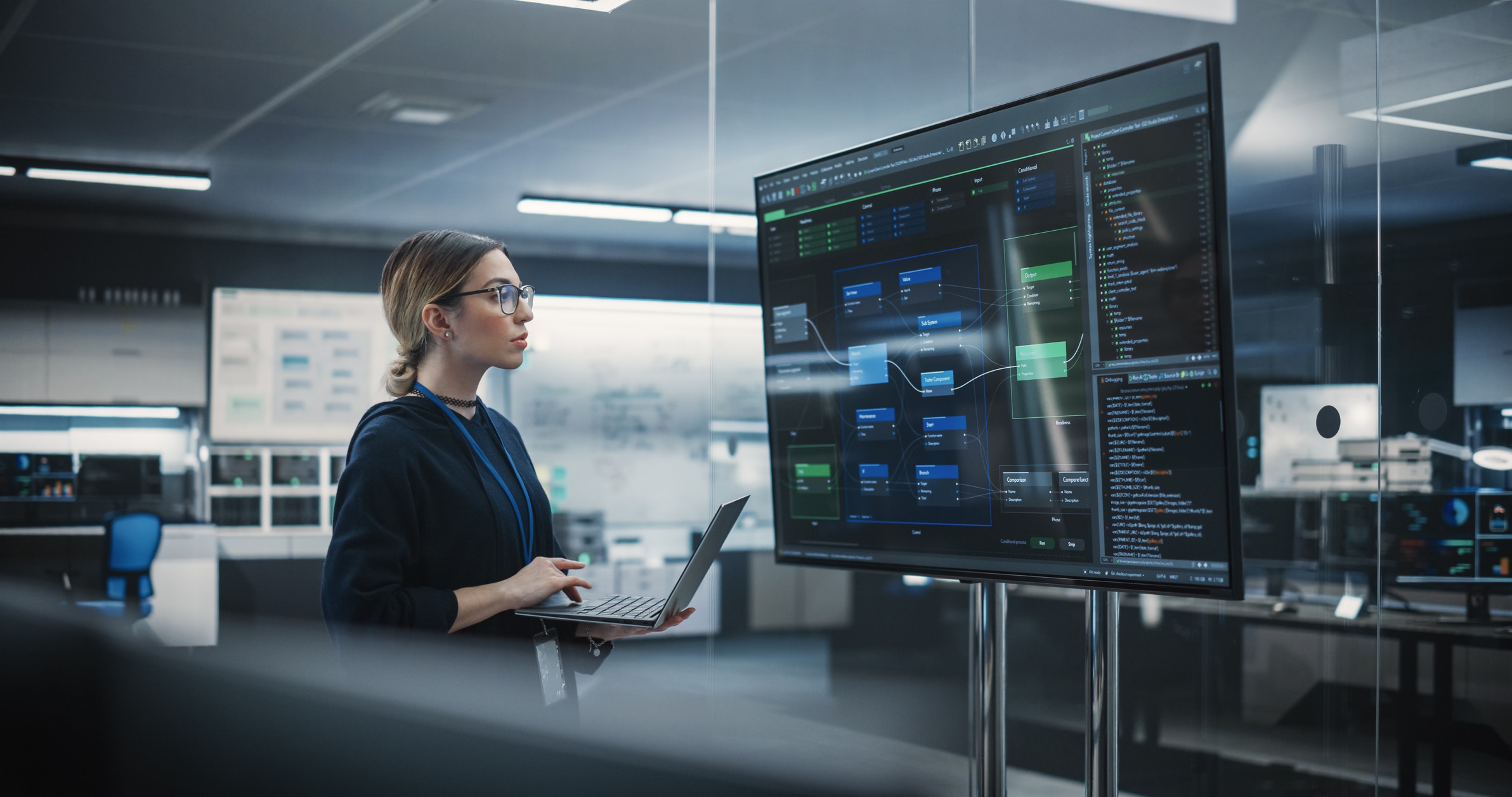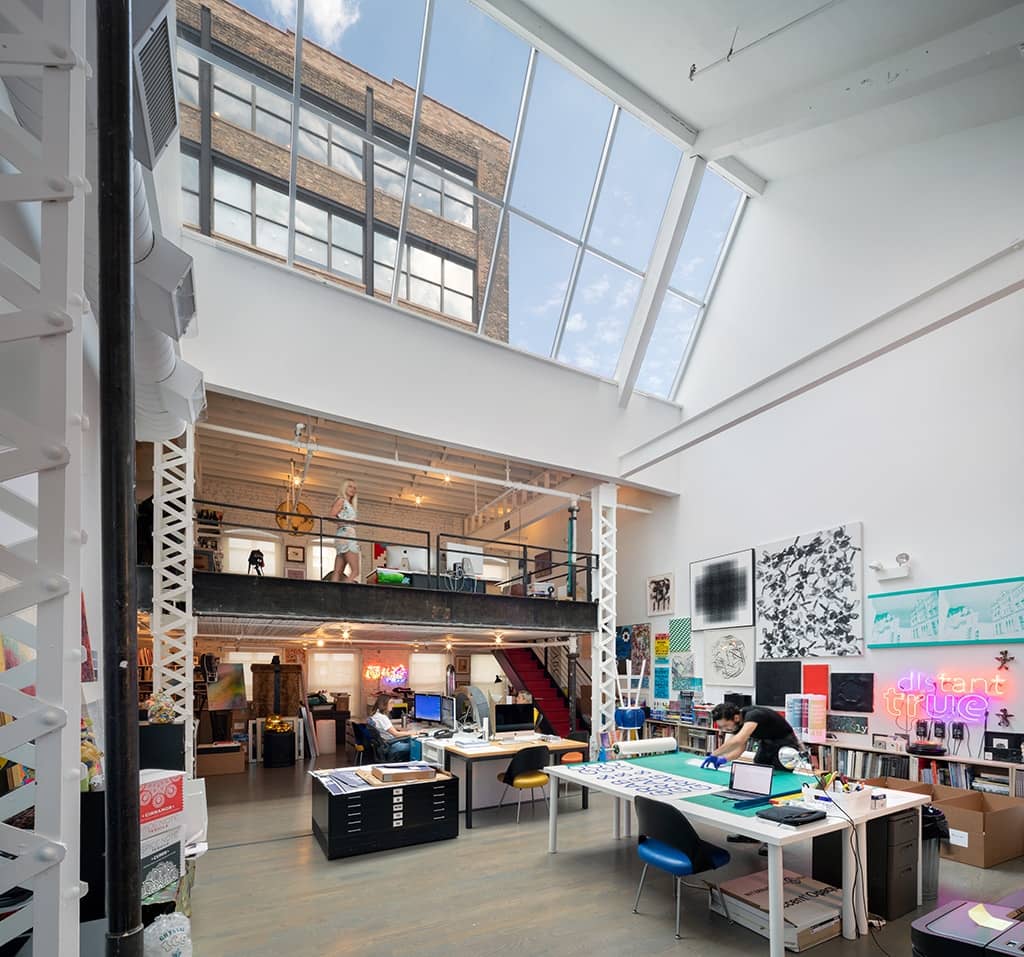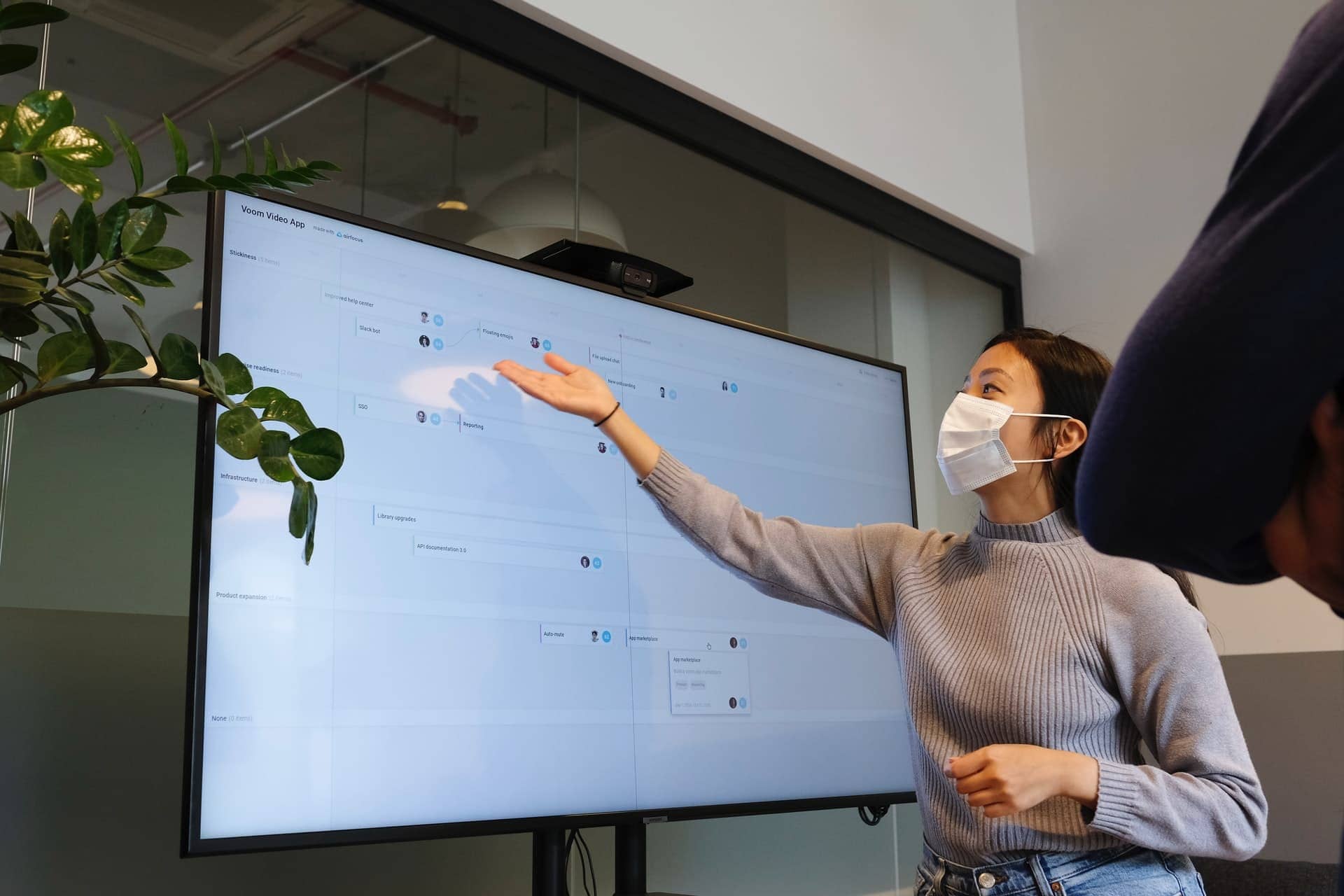The future of artificial intelligence (AI) is expected to include exciting technological innovations and advancements that will certainly find a place in commercial real estate (CRE). In this third and final installment of KBS’ series on AI, you’ll get a glimpse into what experts are saying about AI and which industries, including CRE, are likely to reap the most benefits during the next few years. This information points to where opportunities await, the barriers ahead, and how to adjust AI technology efforts across broader business plans and strategies.
AI is here to stay in a big way. The proof is in the numbers. The industry is expected to see an annual growth rate of 37.3% between 2023 and 2030, reaching $407 billion by 2027. Companies are becoming more confident in AI possibilities and four out of five firms plan to make AI a top priority.
A McKinsey research report showed that executives see the greatest returns in AI-supported marketing and sales, product and service development, strategy and corporate finance, and supply chain management. What’s more, 64% of businesses believe that AI tech increases productivity. Some are wary that AI could displace certain job functions. And others believe that AI will create approximately 97 million new jobs.
The sheer magnitude of AI gives it the power to drastically influence the economic impact of many sectors. According to Michael Bennett at The Institute for Experiential Artificial Intelligence at Northeastern University in Boston, the five industries that will be most impacted by AI are:
- Healthcare in terms of more accurate medical evaluations, diagnosis, and breakthrough discovery.
- Finance in terms of improving all client and business, planning, management, and investment processes and touchpoints.
- Education in terms of highly-tailored teachings and curriculum based on students’ individual learning styles.
- Legal in terms of reshaping and consolidating smaller firms. Bennett states that by 2028 the number of human lawyers in the U.S. could be cut by 25% or more.
- Transportation in terms of increased self-driving vehicle adoption for personal and commercial use. Some research shows that 10% of vehicles will be self-driving by 2030 and the global market of self-driving cars will reach 62.4 million units.
AI is already here
We may be on the verge of new and massive CRE investments in many fields. For example, you can’t have cell phones or the cloud without AI and that means growing data center demand. According to The New York Times, “The need for data centers has soared, fueled by remote work and the growth of high-speed streaming. But finding the necessary land and energy can be a challenge.”
And yes, the need for more data centers may well be a challenge, but it’s also an opportunity.
We live in an interconnected world. That’s largely seen as a good thing, except when there’s a chip shortage overseas and you have 40,000 unfinished cars sitting in lots. We see more businesses reshoring and moving back to the US — companies that will require additional CRE space. Chip manufacturing, for example, is getting a huge boost with passage of the $280 billion CHIPS and Science Act last year.
Meanwhile, the holiday season is approaching, and with it comes the need to field armies of delivery workers. Amazon has announced that it will hire 250,000 people for the season. To handle the additional business, Amazon has opened more than “50 new fulfillment centers, delivery stations, and same-day delivery sites” just this year.
Some projections also point to the manufacturing space benefitting tremendously from AI with an expected surge of $3.8 trillion by 2035.
Other sectors poised to benefit from AI include Defense (e.g., smarter weapon systems and surveillance technologies to improve national security and combat operations). In the advertising sector, AI will help deliver highly targeted campaigns that will more accurately reach certain audiences to generate sales and expand market share.
Challenges ahead
Some feel that AI has the potential to become too powerful. In March 2023, more than a thousand technology leaders and researchers urged artificial intelligence labs to pause the development of the most advanced systems, warning in an open letter that AI presents “profound risks to society and humanity.” Tech heavyweights like Apple co-founder Steve Wozniak have endorsed the letter.
The issue isn’t so much how to put a lid on the power of AI, but instead, how to regulate and control it. AI and machine learning will test current privacy laws and ethical standards given the massive amounts of information about people’s personal data and businesses that exist in the AI sphere.
Without question, AI data privacy is expected to become a critical discussion point with increased scrutiny about how sensitive information is collected, where it’s stored and how it’s being accessed and used. Also, look for new compliance guidelines and laws as governments and other supervisory entities work to regulate AI implementation.
Conclusion
AI has without a doubt had a profound impact on society and businesses, and the race to develop, enhance and implement the next generation of AI is far from over. One of the more ambitious areas experts are tracking is what some call “artificial general intelligence” or AGI, which takes today’s AI a step further.
AGI is basically an AI/machine that functions like the human brain — complete with reasoning and common sense. To make AI more human-like is a massive undertaking that reaches far beyond data, but it may only be a matter of time until AGI is a reality.
The possibilities of AI are endless, which can be exciting, and also scary. Looking into the next few years, we can expect to see interesting applications hit the market and we encourage CRE to be ready and seek new opportunities ripe for the picking. We can no longer fear AI. We need to embrace it.
If you haven’t read parts one or two of this series, be sure to catch them and other developments in the CRE industry by visiting KBS.com/Insights.




